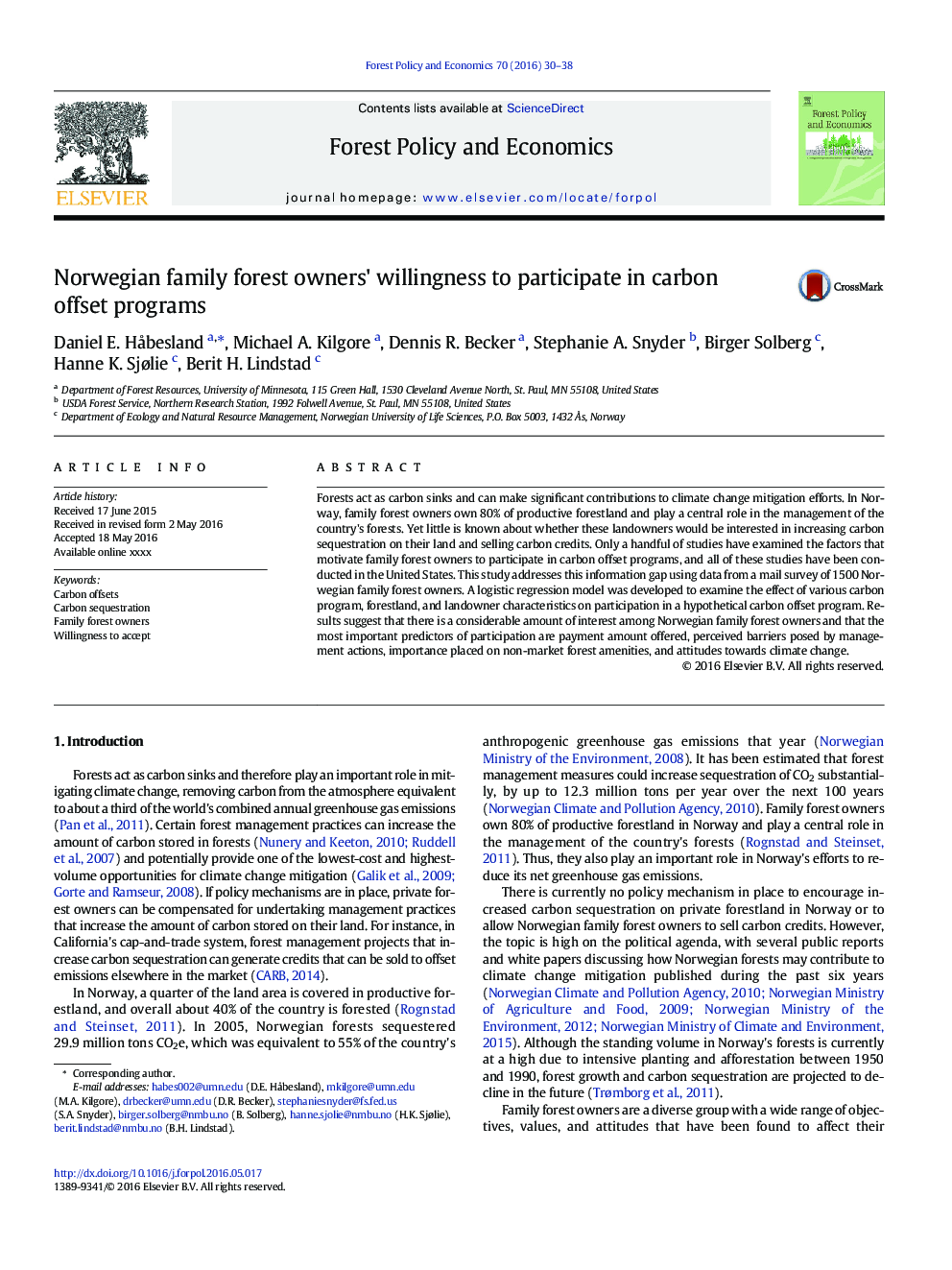| Article ID | Journal | Published Year | Pages | File Type |
|---|---|---|---|---|
| 6544867 | Forest Policy and Economics | 2016 | 9 Pages |
Abstract
Forests act as carbon sinks and can make significant contributions to climate change mitigation efforts. In Norway, family forest owners own 80% of productive forestland and play a central role in the management of the country's forests. Yet little is known about whether these landowners would be interested in increasing carbon sequestration on their land and selling carbon credits. Only a handful of studies have examined the factors that motivate family forest owners to participate in carbon offset programs, and all of these studies have been conducted in the United States. This study addresses this information gap using data from a mail survey of 1500 Norwegian family forest owners. A logistic regression model was developed to examine the effect of various carbon program, forestland, and landowner characteristics on participation in a hypothetical carbon offset program. Results suggest that there is a considerable amount of interest among Norwegian family forest owners and that the most important predictors of participation are payment amount offered, perceived barriers posed by management actions, importance placed on non-market forest amenities, and attitudes towards climate change.
Related Topics
Life Sciences
Agricultural and Biological Sciences
Forestry
Authors
Daniel E. Håbesland, Michael A. Kilgore, Dennis R. Becker, Stephanie A. Snyder, Birger Solberg, Hanne K. Sjølie, Berit H. Lindstad,
